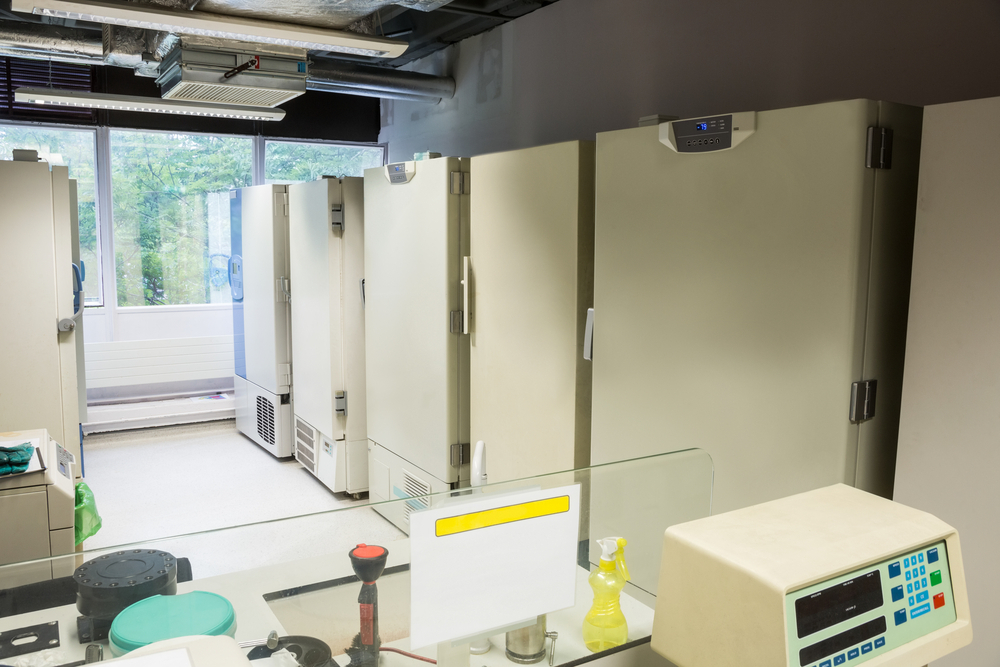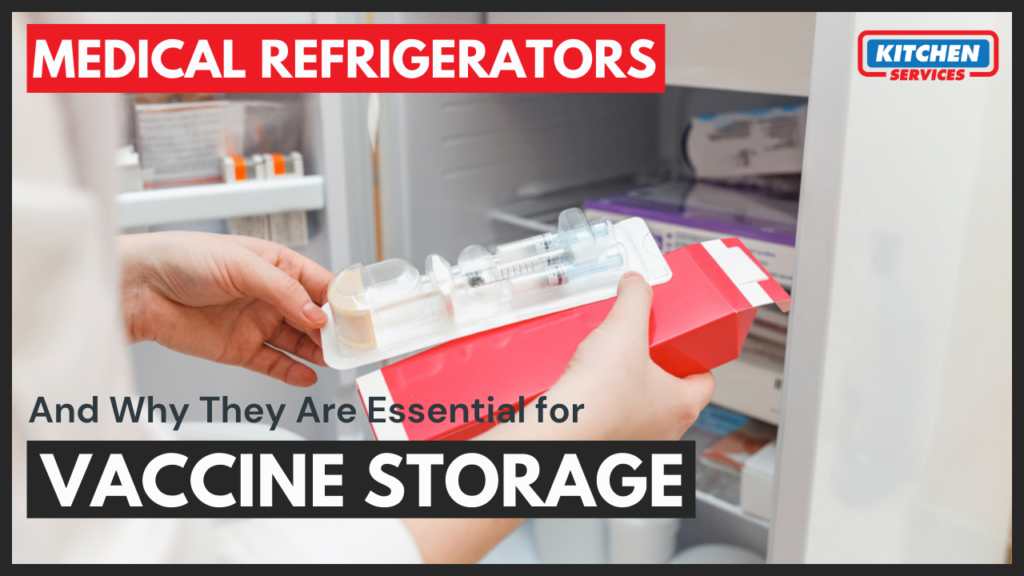Before going any further you must know what medical freezers are and how are they different from domestic freezers. Actually, unlike domestic freezers, medical Freezers are designed in such a way that they meet the suggested CDC temperature requirements in which you may safely store vaccines & medications. These first-class medical freezers safeguard frozen vaccines from fluctuating temperatures.
5 Major Benefits of Buying Medical Refrigerators

Medical freezers are somewhat different from our domestic freezers as they possess different properties and mechanisms, some key benefits of buying medical freezers are as follows.
- They guarantee a reliable cold chain for biologics.
- They have precise temperature monitoring and alarm systems.
- They encourage better air flow.
- Medical-grade units prevent unsanctioned staff access to biologics.
- They help in protecting all the biological products and vaccines from temperature excursions due to power failures.
Selecting Medical Refrigerators for Vaccines

As we are all the victims of these times that have uninvitedly come our way, we’re taking care of one’s own self is one thing and depending on vaccines for our survival is another main thing. Times like these have been very challenging and stressed the need for dominant healthcare conditions in the world. We are totally dependent on vaccines, so it is very important to follow each, and every protocol related to vaccines carefully because we don’t want to risk our lives at any cost. Starting from excellent engineering to safe storage, every side must be taking care of carefully. There is no debate about how domestic refrigerators are incapable of storing vaccines.
As we know that The Centers for Disease Control and Prevention have given defined guidelines on how to store vaccines. According to these guidelines, the respected CDC advises, not to store any vaccine in a bar-style, dormitory-style, or combined refrigerator and freezer unit under any conditions. Furthermore, they mentioned that these units are made for national needs and contain only a single exterior door along with an evaporator plate or cooling coil, that is usually located in an icemaker and freezer compartment. These freezers have a significant risk of freezing vaccines, even if they are used for temporary storage, this will render the vaccines useless and ineffective. They also warn that the effectiveness is reduced every time a vaccine is exposed to improper conditions and temperatures. And once it has been lost, the effectiveness cannot be revived. For most households, a refrigerator is dependable and does a suitable job at storing the food at a safe temperature, keeping them fresh and clean.
Medical Refrigerators Vs Domestic Refrigertors
However, there are some attributes that emphasize the difference between a purpose-built pharmaceutical refrigerator and a local refrigerator. Domestic refrigerators have numerous disadvantages pertaining to vaccine storage, such as:
- Domestic refrigerators are incompetent of enduring the 2-8°C temperature range which is a must temperature for optimal vaccine storage.
- Supposedly, there is only one shelf in a domestic refrigerator that falls under the recommended temperature range that is 2-8°C. So, it is not possible to store vaccines in the domestic refrigerator.
- It is seen that a domestic refrigerator undergoes wide temperature fluctuations and heating cycles that can ruin the vaccine.
- Temperature stability is revered when it comes to storing vaccines. However, domestic refrigerators are deprived of the feature to monitor and control temperature by itself.
- There is no doubt that our domestic refrigerators may seem to be an inexpensive choice. But actually, it is not, especially when it comes to storing vaccines as the entire domestic refrigerator cannot be used to store them.
Features of Medical Refrigerators
Now that we know that domestic refrigerators fail a big time at storing vaccines precisely. Here we outline some of the features of a purpose-built medical-grade refrigerator.
- Since a purpose-built medical refrigerator is specially designed to store vaccines, so you may use the whole space solely to store vaccines.
- In specially designed medical refrigerators temperatures are retained between the recommended 2°C to 8°C temperature range. This will reduce the risk of vaccines being stored outside the suggested temperature range and leaving them ineffective.
- Managing a medical refrigerators are a lot easier than a domestic one.
- Medical refrigerators come with 100% functioning excellence and 0 risks of wrong placement in them.
- A vaccine refrigerator is incorporated with an alarm system that tells you when minimum or maximum temperatures are violated, along with a temperature display in it.
- The digital temperature control facilitates fulfillment and makes sure precise temperature with 1 Deg variance.
- There are a lot of shelves which are made to make sure that many vaccines can be stored without having to worry about space.
- You may see that most of the medical refrigerators are incorporated with glass doors, that allows the users to locate the required items before even opening the door. This feature will facilitate temperature stability and improves efficiency.
Factors To Consider When Buying a Medical-Grade Refrigerator

Before buying a medical refrigerator, you must keep in mind the following factors;
Purpose
Most medical-grade refrigerators often fall into these five usage categories:
- Pharmaceutical supplies
- Chromatography
- Vaccine storage
- Blood bank
- Laboratories
You must choose units that perfectly meet your primary requirements, which totally depends on what that product is offering.
Place
It would be ideal if you put these medical refrigerators in a room that has low foot traffic with a proper air circulation system. In this way, you will possibly prevent unwanted interference by the staff that might cause internal temperature changes at that place.
The ideal would be at least four inches between the refrigerator and adjoining walls should be allocated for sufficient room and better airflow.
Size
You will see a large variety of medical storage unit sizes available in the market, starting from compact models to large-capacity models every kind is available. You must select the perfect size that closely fits your organizational needs which totally depends on the space that is available in your facility and the number of vaccines that need to be stored. You must keep in mind that congestion in units that are very small in size results in poor internal flow of air, while the units that are too spacious for the materials can also affect internal temperatures and lead to unnecessary electricity consumption thus causing a lot of money loss.
Vaccine Refrigerator temperature
There are a lot of innovations that have been established to strengthen medical-grade units. In the process of buyi9ng any unit, you must keenly see that the microprocessor controllers and compressors must be in place because these systems tend to sustain target temperatures and prevent temperature fluctuations to avoid damages.
There are some amazing innovations such as self-closing doors that are featured in some refrigerators, they help in preventing the refrigerators from being left unintentionally open by busy healthcare staff, in this way no unwanted power would be consumed. Most of the refrigerators also have hospital-grade cords with solid pins and giant plug bodies that help in reducing the risk of wire-to-outer contour shock.
Manually defrosting refrigerators will often take a bit longer, but there are some refrigerators that can work better through this method. Some refrigerators also have auto-defrost abilities, these kinds of units require less maintenance, but they obviously involve more power than manual ones. You must choose the unit according to the stock that has to be stored in it. For vaccine storage, units should always stay frost-free to ensure the vaccines’ safety and avoid frozen vials.

